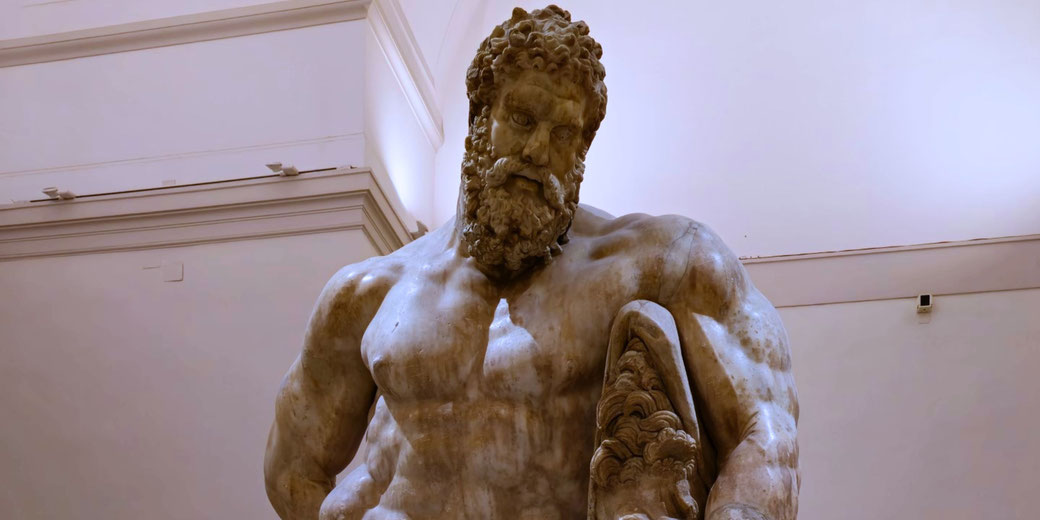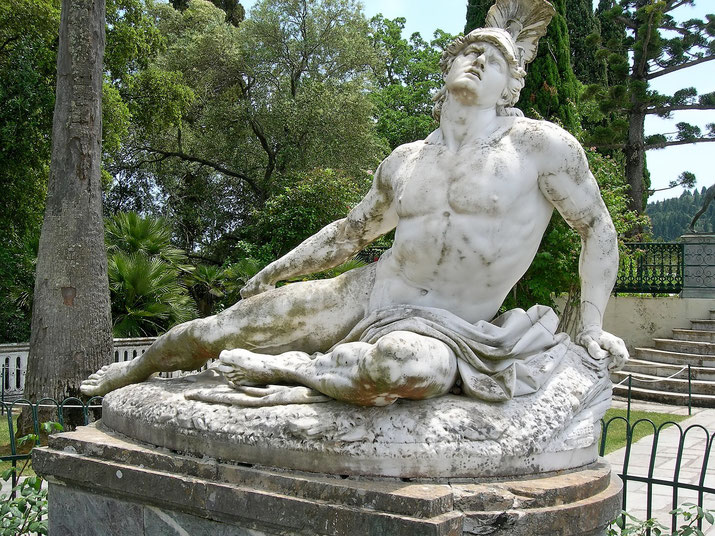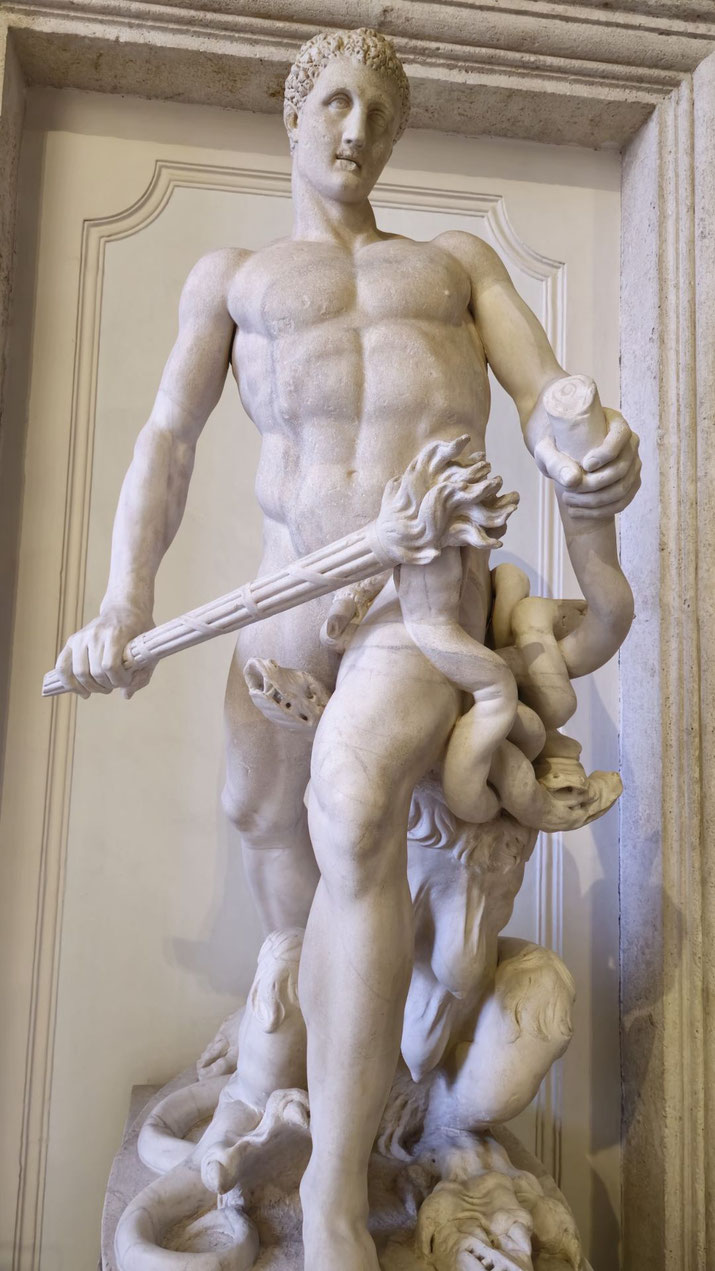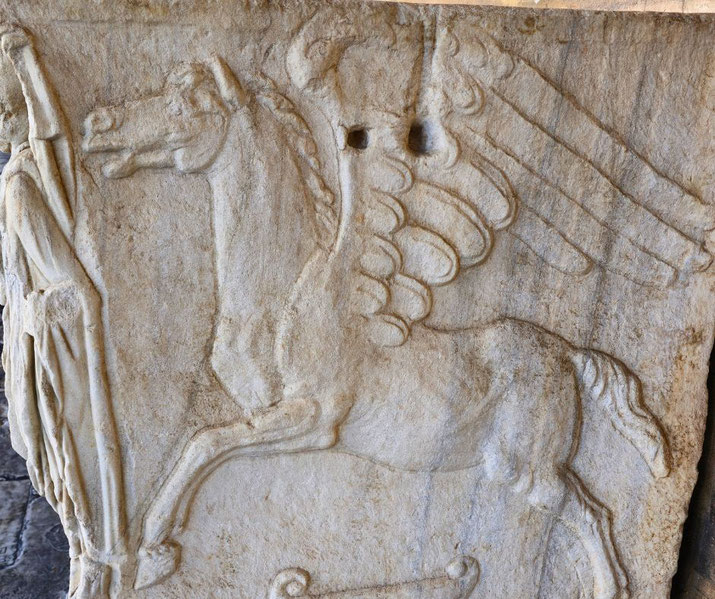From Achilles to Odysseus: The 10 greatest heroes from Greek mythology

Greek mythology is an epic world filled with gods, goddesses, monsters, and, of course, heroes. Many of their stories have been passed down over generations and have inspired many works of literature, art, and film.
From the unbeaten Achilles to the clever Odysseus, they are examples of bravery, strength, and determination.
What made someone a 'hero'?
In Greek mythology, heroes showed exceptional bravery, strength, or skill in tough situations.
They were people who went beyond what others expected, who often risked their lives to protect their families, communities, or kingdoms.
Heroes were also expected to have certain qualities, such as honour, courage, loyalty, and justice. In many accounts, these virtues guided their actions and decisions.
They were often called on to complete impossible tasks or face powerful enemies, such as monsters or gods.
Many of these heroes also had divine ancestry; they were often the children of a god or goddess, which gave them special abilities and strengths.
Because of this lineage, the deeds and adventures of these figures were celebrated and remembered in epic poems, stories, and artworks.
Their deeds and adventures were celebrated and remembered in epic poems, stories, and artworks, ensuring that they became lasting figures of inspiration and admiration in Greek culture.
1. Achilles
Achilles is one of the most well-known heroes in Greek mythology, famous for his amazing strength, bravery, and skill in fighting.
He was a central figure in Homer's Iliad, as the son of the mortal Peleus and the sea nymph Thetis.
In later tales, Thetis dipped him in the river Styx as a baby. By doing this, she made him almost impossible to injure, except for his heel, which she held onto during the dipping process.
Later, during the Trojan War, Achilles was a key figure among the Greek forces who fought on the front lines and led his troops to victory.
He was known for his rage and his unforgiving treatment of his enemies.
However, his legendary reputation was also built on his impressive skills in battle, such as his speed, agility, and use of the spear.
Achilles’ story is also famous for his close friendship with Patroclus, who was killed in battle by Hector, the Trojan prince.
When Patroclus fell, Achilles felt grief and anger over his death.
Achilles felt grief and anger over Patroclus’s death and sought revenge. He killed Hector and then tied him to his chariot before dragging him around the city of Troy.
Despite his skill as a warrior, Achilles’ greatest weakness was his pride, which led him to disobey the gods and put his own glory above the lives of his fellow soldiers.
In the end, he was killed by an arrow to his heel, the one vulnerable spot on his body.
His death was mourned by both the Greeks and the Trojans.

2. Odysseus
Odysseus, also known as Ulysses in Roman mythology, is the main character of Homer's epic poem the Odyssey.
He was known for his smarts, cleverness, and skill, which he used to overcome many obstacles and challenges during his ten-year journey home after the Trojan War.
He was the king of Ithaca who played a key role in the Trojan War, notably fighting on the Greek side and devising the plan of the Trojan horse.
His greatest achievement during the war was the invention of the Trojan horse, a giant wooden horse filled with Greek soldiers, which allowed the Greeks to enter the city of Troy and win the war.
After the war, he set sail for home but faced a series of obstacles and challenges. For example, he encountered monsters such as Polyphemus the Cyclops and Scylla and Charybdis.
During his voyage, he also had to sail dangerous seas and deal with angry gods such as Poseidon.
Throughout his journey, Odysseus used his intelligence to outsmart his enemies and overcome odds that seemed impossible.
He was also known for his bravery and leadership, and was respected by his crew and admired by other heroes.
Despite the many challenges he faced, Odysseus eventually made it home to Ithaca, where he was brought back together with his wife Penelope and his son Telemachus.
3. Hercules
Hercules is also known as Heracles in Greek mythology, and he was the son of Zeus, the king of the gods, and a mortal woman named Alcmene.
Hercules was known for his amazing strength and athletic abilities, such as his ability to run and jump great distances, and in his early life, he performed feats that demonstrated these gifts.
He was also known for his human flaws, such as his hot temper and his habit of violence; for instance, he killed his wife and children during a period of madness that the goddess Hera caused because she was jealous of his relationship with Zeus.
To make up for his actions, Hercules undertook twelve impossible tasks known as the Labours of Hercules.
These tasks included slaying the Nemean Lion, capturing the Erymanthian Boar, and cleaning the Augean stables in a single day.
Hercules’ story has been celebrated for centuries as a symbol of human strength and stamina.

4. Perseus
He was an important hero, especially in Mycenae and Argos. Perseus was brave and clever, killing the Gorgon Medusa and saving Andromeda from a sea monster.
He was the son of the god Zeus and the human woman Danae. Danae was locked in a tower by her father because he feared a prophecy saying his grandson would kill him.
Zeus came to Danae as a shower of gold. From this union, he was born.
When he grew up, King Polydectes sent him to kill the Gorgon Medusa, whose gaze turned people to stone.
With help from the gods, he received a magical sword and a shiny shield, which he used to cut off Medusa’s head by its reflection without looking at her.
Afterward, he used her head as a weapon in later battles.
Some time later, he saved Andromeda, the daughter of the king of the land of Ethiopia, who had been chained to a rock as a sacrifice to a sea monster.

5. Theseus
He was the son of Aegeus, the king of Athens, and a woman named Aethra. When Theseus became an adult, he set out on a journey to find his father.
Aegeus had left a sword and a pair of sandals under a rock for his son to find when he was ready.
After many adventures, he reached Athens and was welcomed by his father, who did not recognise him at first.
In fact, he became popular in the city and was chosen by the people to be one of the seven young men and seven young women sent as tribute to Crete.
They were to be sacrificed to the Minotaur, a monster with the head of a bull and the body of a man.
He volunteered to be one of the tributes and promised his father he would return alive.
In Crete, he met Princess Ariadne, who fell in love with him. She gave him a ball of thread that helped him find his way out of the labyrinth where the Minotaur lived.
With the thread as his guide, he found his way through the labyrinth and defeated the beast. This victory freed Athens from its duty to send tribute to Crete.
After he defeated the creature, he returned to Athens. Among his deeds, he continued to perform many great tasks, including uniting the city and creating a set of laws.
He was also a skilled fighter and took part in many battles to protect the people of Athens.
6. Jason
Jason was the son of Aeson, the rightful king of Iolcus. However, his uncle Pelias had taken the throne and forced Aeson into exile.
When he became an adult, he returned to Iolcus and demanded that Pelias give the throne back to his father.
Pelias agreed, but only if his nephew could bring back the Golden Fleece. Specifically, this was a magical hide said to be held by a flying ram.
He accepted the challenge and set out to find the treasure.
He gathered a group of heroes called the Argonauts, who included Hercules, Orpheus, and Peleus.
With help from the goddess Athena, they built a ship called the Argo. People said it was the first ship ever made.
On their journey, the Argonauts faced many dangers, including giants, sea monsters, and other creatures.
Eventually, they met the sorceress Medea, who fell in love with him and used her magic to help him.
When they reached Colchis, where the Golden Fleece was kept, he had to complete difficult tasks.
These tasks were: he had to yoke two fire-breathing bulls. He also had to plant a field with dragon’s teeth. Soldiers rose up from that field.
With Medea’s magic, he succeeded and claimed the Golden Fleece.
When he returned to Iolcus, Pelias refused to give up the throne. In revenge, Medea tricked his father’s daughters into killing him. The couple fled the city.
Sadly, despite his success, his story ended badly. His relationship with the sorceress ended when she killed their children to avenge his betrayal.
He died alone and unhappy. His friends had abandoned him and he no longer had his former fame.
7. Atalanta
She was abandoned by her parents as a baby. A she-bear in the wild then raised her.
As she grew, she became a skilled hunter and archer, known for her speed.
She also promised to remain a virgin for life and refused to marry or be bound by any man.
Her skills as a hunter and athlete caught the attention of King Oeneus of Calydon. He invited her to join a great hunt he was organising.
She joined the hunt and showed she was the best of all because she outran and outshot many of the male hunters.
Following the hunt, she had many more adventures. She joined the Argonauts on their quest for the Golden Fleece as one of the few women in the group.
She took part in the Calydonian Boar Hunt, where she played an important part in killing the boar terrorising the land.
Her most famous achievement was in a footrace. Many suitors challenged her to win her hand in marriage, but she refused to marry any of them.
She agreed to race them with a rule: any suitor who lost would be killed.
Many suitors tried and failed to beat her. One young man named Hippomenes had a plan.
He brought three golden apples and threw them one by one during the race. This caused her to slow down and become distracted.
In the end, Hippomenes won the race. He and she fell in love and married.
They forgot to thank the goddess Aphrodite, who had helped them during the race. Because of this, they were both punished for not showing thanks.
Her story shows her independence and strength. She ignored traditional gender rules and proved she was one of the greatest hunters and athletes of her time.
8. Bellerophon
According to stories, Bellerophon was the son of the god Poseidon and a mortal woman named Eurynome.
He grew up to be a skilled fighter and was respected for his strength and courage.
One day, Athena, the goddess, visited Bellerophon and gave him a golden bridle, telling him to use it to tame the winged horse Pegasus.
This horse, Pegasus, had come from the blood of Medusa when Perseus killed her.
Following Athena’s advice, he managed to catch Pegasus and ride him through the sky.
After that, he took part in a series of amazing adventures, fighting the fierce monster called the Chimera, which had the head of a lion, the body of a goat, and the tail of a serpent.
Because he used Pegasus to fly above the monster, he tied a block of lead to his spear and managed to thrust it into the Chimera’s mouth.
The heat from the beast’s fire melted the lead, and it smothered the monster.
After this achievement, he was praised as a hero throughout the land.
However, his fame and success led to excessive pride, and he became arrogant and boastful.
He believed that he was equal to the gods and tried to fly to Mount Olympus to join them.
In response, Zeus sent a gadfly to sting Pegasus, which caused him to fall to the ground.
In some versions of the story, he survived the fall but was left paralysed and alone.
Despite this downfall, his reputation lasted, and he was remembered as a great hero and fighter.

9. Orpheus
Orpheus was a famous musician and poet in Greek mythology, who had great talent and who could charm even the gods.
According to stories, he was the son of the god Apollo and the muse Calliope.
He grew up to be a gifted musician and poet, and was well known for his lovely singing voice, and for his skill with the lyre.
One day, he fell in love with a nymph named Eurydice. They married soon after, but their happiness ended when Eurydice was bitten by a snake and died.
Because he was heartbroken, he went down into the underworld to ask Hades, the god of the underworld, to let Eurydice return from the realm of the dead.
At that point, he sang a song so moving that even the spirits of the dead wept, and Hades agreed to let Eurydice go on one condition: he must not look back at her until they had reached the world above.
He agreed and began to lead Eurydice out of the underworld.
But just before they reached the world above, he felt an urge to look back at his wife.
As he did, Eurydice was pulled back into the underworld, and she was lost to him forever.
From then on, he remained in mourning, and he spent the rest of his days in sadness, and he sang sad songs about lost love and longing.
Over time, his music moved people, and his story was remembered long after he died.
In one version of the story, after he rejected their advances, he was killed by a group of women who went mad.
At the end, they tore him apart, but his head continued to sing, and it continued to play the lyre until it was thrown into a river and carried out to sea.
10. Daedalus
According to stories, Daedalus was a talented craftsman who was hired by King Minos of Crete to design a maze to hold the half-man, half-bull Minotaur.
He designed and built the maze, but soon, King Minos locked him up because he feared he would reveal the maze’s secrets.
Determined to escape, he used his skill to make wings from feathers and wax.
He gave a pair of wings to his son, Icarus, showed him how to fly, and warned him not to go too close to the sun, because the heat would melt the wax and cause the wings to fail.
Icarus was so excited by this new ability that he ignored his father’s warning, and he flew too close to the sun.
As expected, the heat melted the wax in his wings, and he fell into the sea, and he drowned.
Because he was heartbroken by the loss of his son, he lived in hiding, and he used his skill to design other amazing creations.
At that time, people said that he made statues so life-like that they seemed to move on their own, and that he created a machine that could walk and dance like a person.
In some versions of the story, after he escaped, he returned to Athens, and King Cocalus gave him shelter.
In the end, he was remembered as a symbol of skill and creativity, and his story inspired many artists, many writers, and many inventors through the ages.
What do you need help with?
Download ready-to-use digital learning resources
Copyright © History Skills 2014-2025.
Contact via email
With the exception of links to external sites, some historical sources and extracts from specific publications, all content on this website is copyrighted by History Skills. This content may not be copied, republished or redistributed without written permission from the website creator. Please use the Contact page to obtain relevant permission.





